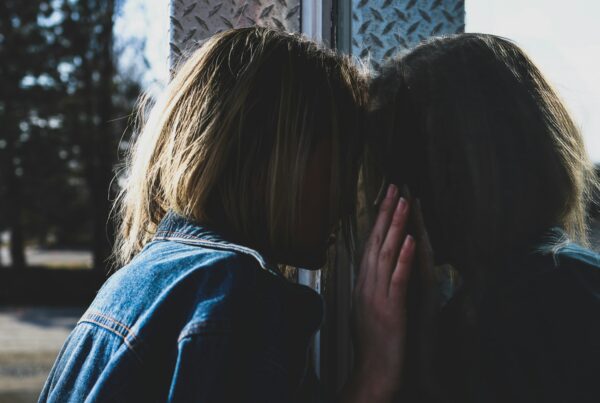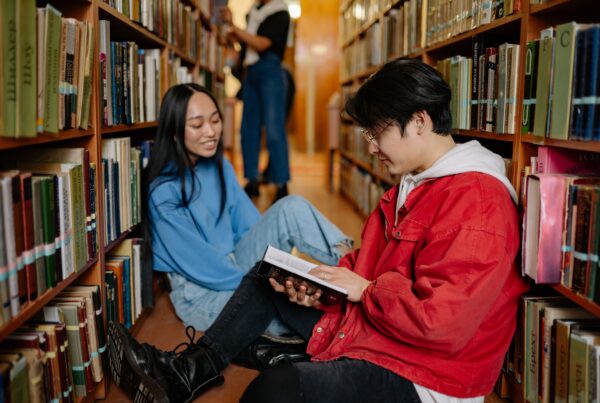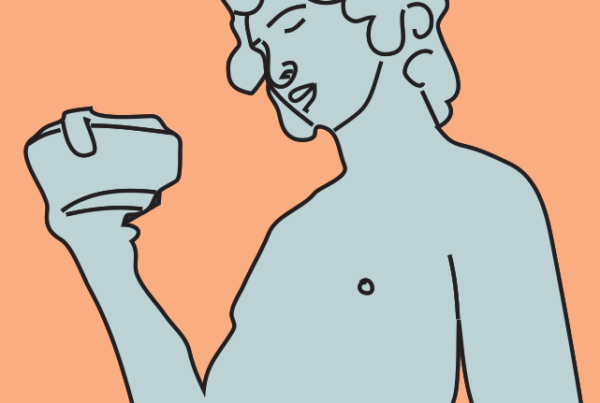
The mysterious optional course profile- an option we all have in our degrees, but may be curious or reluctant about taking. For this issue of The Corridor, the Spiegeloog will be interviewing two students who took a non-linear study path and ask them about their experiences of taking them, how it enriched their academic experience, and for who and why they would recommend this decision.
The mysterious optional course profile- an option we all have in our degrees, but may be curious or reluctant about taking. For this issue of The Corridor, the Spiegeloog will be interviewing two students who took a non-linear study path and ask them about their experiences of taking them, how it enriched their academic experience, and for who and why they would recommend this decision.
Laura (Dual Master’s Student- Research Master Psychology & Cultural Psychology)
Spiegeloog: What kind of unique study path are you pursuing?
Laura: I am doing two master’s, so the research master’s and the cultural psychology master.
Spiegeloog: What made you decide to take on two master’s?
Laura: The research master’s was too statistic-based for me and lacked content courses. Also, I didn’t enjoy how serious and competitive the research master’s was. In my first month of doing the research master, I followed a cultural elective and enjoyed the course, the people, and the outlook of the professors so that’s why I enrolled in the cultural psychology master after my first year of the research master.
Spiegeloog: How was your experience with it?
Laura: Positive, I loved meeting cultural and resmas people and getting to know more about cultural psychology while also following statistics, research and other social psychology content courses. But I won’t lie, now that I am slowly approaching the end while my friends are all graduating, I sometimes wonder if it wouldn’t have been nicer to finish the programme together. Still, I don’t regret the choice, but doing two master’s is something that takes a lot of planning, insight into your courses and whether you can get exemptions, and good communication with all the study, thesis and internship supervisors.
Spiegeloog: If you could change something about your experience, what would it be?
Laura: I would be more chill about the timeline. Originally, I wanted to be done in 2,5 years. However, this would have meant quite a lot of stress with the internship, following my courses and probably would have meant I would have needed to cut down on the social things. So, if I could go back, I would tell myself that one more semester really does not matter in the grand scheme and to take it more chill. That’s why I am doing now, and it makes all this much easier and feasible.
Spiegeloog: Would you recommend it? What are things for people to consider before they take this on?
Laura: I would only recommend it to people who are on top of their shit. Not saying I always am but coordinating two master’s programmes can be a lot if you don’t schedule the necessary meetings, request exemptions in time, find a thesis topic that covers both disciplines and struggle with coordinating two or more friend groups. Since I’ve always been doing a lot, this was fine for me but I also learnt how to schedule courses and programmes by doing the honours programme. There, you had to check whether the exams and courses would not collide with your regular programme. So, if you really want to do two masters’, I would totally recommend combining them. But be aware of the necessary steps to take beforehand and set things in motion as early as you can (:.
N.B.M. (Bachelor’s Psychology Student)
Spiegeloog: What kind of unique study path are you pursuing?
N.B.M.: I found out that I have a study delay a little later after the registration period for courses about 2 years ago. This is when I went to study advisors with my issue and they suggested I make my own minor with electives of my choice.
Spiegeloog: What made you decide to take on two master’s?
N.B.M.: I decided to take it as I was really interested in going into social work after my Bachelors and there were minors at UvA for that. So I thought that was an opportunity to integrate of several critical courses into the social work curriculum, courses that I believe are essential to address the multifaceted challenges encountered in the field.
Spiegeloog: How was your experience with it?
N.B.M.: I had a really good experience with this as I learned a lot from the electives I was taking. Since it was also interdisciplinary, I was able to learn from different academic perspectives as well as meet people from different backgrounds. This experience only further encouraged me to continue with Social Work after my studies here. It also gave a break from the rigorous schedule in my bachelors study and helped me reset.
Spiegeloog: If you could change something about your experience, what would it be?
N.B.M.:I had a really good experience with this as I learned a lot from the electives I was taking. Since it was also interdisciplinary, I was able to learn from different academic perspectives as well as meet people from different backgrounds. This experience only further encouraged me to continue with Social Work after my studies here. It also gave a break from the rigorous schedule in my bachelors study and helped me reset.
Spiegeloog: Would you recommend it? What are things for people to consider before they take this on?
N.B.M.: I would a 100% recommend it to others especially if you can’t find a minor you would like to pursue. However, it important to know that the minor has to be approved by the examination board. If you could change something about your experience, what would it be? I wish this was something I had known beforehand instead of finding out because I had no other option.
Laura (Dual Master’s Student- Research Master Psychology & Cultural Psychology)
Spiegeloog: What kind of unique study path are you pursuing?
Laura: I am doing two master’s, so the research master’s and the cultural psychology master.
Spiegeloog: What made you decide to take on two master’s?
Laura: The research master’s was too statistic-based for me and lacked content courses. Also, I didn’t enjoy how serious and competitive the research master’s was. In my first month of doing the research master, I followed a cultural elective and enjoyed the course, the people, and the outlook of the professors so that’s why I enrolled in the cultural psychology master after my first year of the research master.
Spiegeloog: How was your experience with it?
Laura: Positive, I loved meeting cultural and resmas people and getting to know more about cultural psychology while also following statistics, research and other social psychology content courses. But I won’t lie, now that I am slowly approaching the end while my friends are all graduating, I sometimes wonder if it wouldn’t have been nicer to finish the programme together. Still, I don’t regret the choice, but doing two master’s is something that takes a lot of planning, insight into your courses and whether you can get exemptions, and good communication with all the study, thesis and internship supervisors.
Spiegeloog: If you could change something about your experience, what would it be?
Laura: I would be more chill about the timeline. Originally, I wanted to be done in 2,5 years. However, this would have meant quite a lot of stress with the internship, following my courses and probably would have meant I would have needed to cut down on the social things. So, if I could go back, I would tell myself that one more semester really does not matter in the grand scheme and to take it more chill. That’s why I am doing now, and it makes all this much easier and feasible.
Spiegeloog: Would you recommend it? What are things for people to consider before they take this on?
Laura: I would only recommend it to people who are on top of their shit. Not saying I always am but coordinating two master’s programmes can be a lot if you don’t schedule the necessary meetings, request exemptions in time, find a thesis topic that covers both disciplines and struggle with coordinating two or more friend groups. Since I’ve always been doing a lot, this was fine for me but I also learnt how to schedule courses and programmes by doing the honours programme. There, you had to check whether the exams and courses would not collide with your regular programme. So, if you really want to do two masters’, I would totally recommend combining them. But be aware of the necessary steps to take beforehand and set things in motion as early as you can (:.
N.B.M. (Bachelor’s Psychology Student)
Spiegeloog: What kind of unique study path are you pursuing?
N.B.M.: I found out that I have a study delay a little later after the registration period for courses about 2 years ago. This is when I went to study advisors with my issue and they suggested I make my own minor with electives of my choice.
Spiegeloog: What made you decide to take on two master’s?
N.B.M.: I decided to take it as I was really interested in going into social work after my Bachelors and there were minors at UvA for that. So I thought that was an opportunity to integrate of several critical courses into the social work curriculum, courses that I believe are essential to address the multifaceted challenges encountered in the field.
Spiegeloog: How was your experience with it?
N.B.M.: I had a really good experience with this as I learned a lot from the electives I was taking. Since it was also interdisciplinary, I was able to learn from different academic perspectives as well as meet people from different backgrounds. This experience only further encouraged me to continue with Social Work after my studies here. It also gave a break from the rigorous schedule in my bachelors study and helped me reset.
Spiegeloog: If you could change something about your experience, what would it be?
N.B.M.:I had a really good experience with this as I learned a lot from the electives I was taking. Since it was also interdisciplinary, I was able to learn from different academic perspectives as well as meet people from different backgrounds. This experience only further encouraged me to continue with Social Work after my studies here. It also gave a break from the rigorous schedule in my bachelors study and helped me reset.
Spiegeloog: Would you recommend it? What are things for people to consider before they take this on?
N.B.M.: I would a 100% recommend it to others especially if you can’t find a minor you would like to pursue. However, it important to know that the minor has to be approved by the examination board. If you could change something about your experience, what would it be? I wish this was something I had known beforehand instead of finding out because I had no other option.



